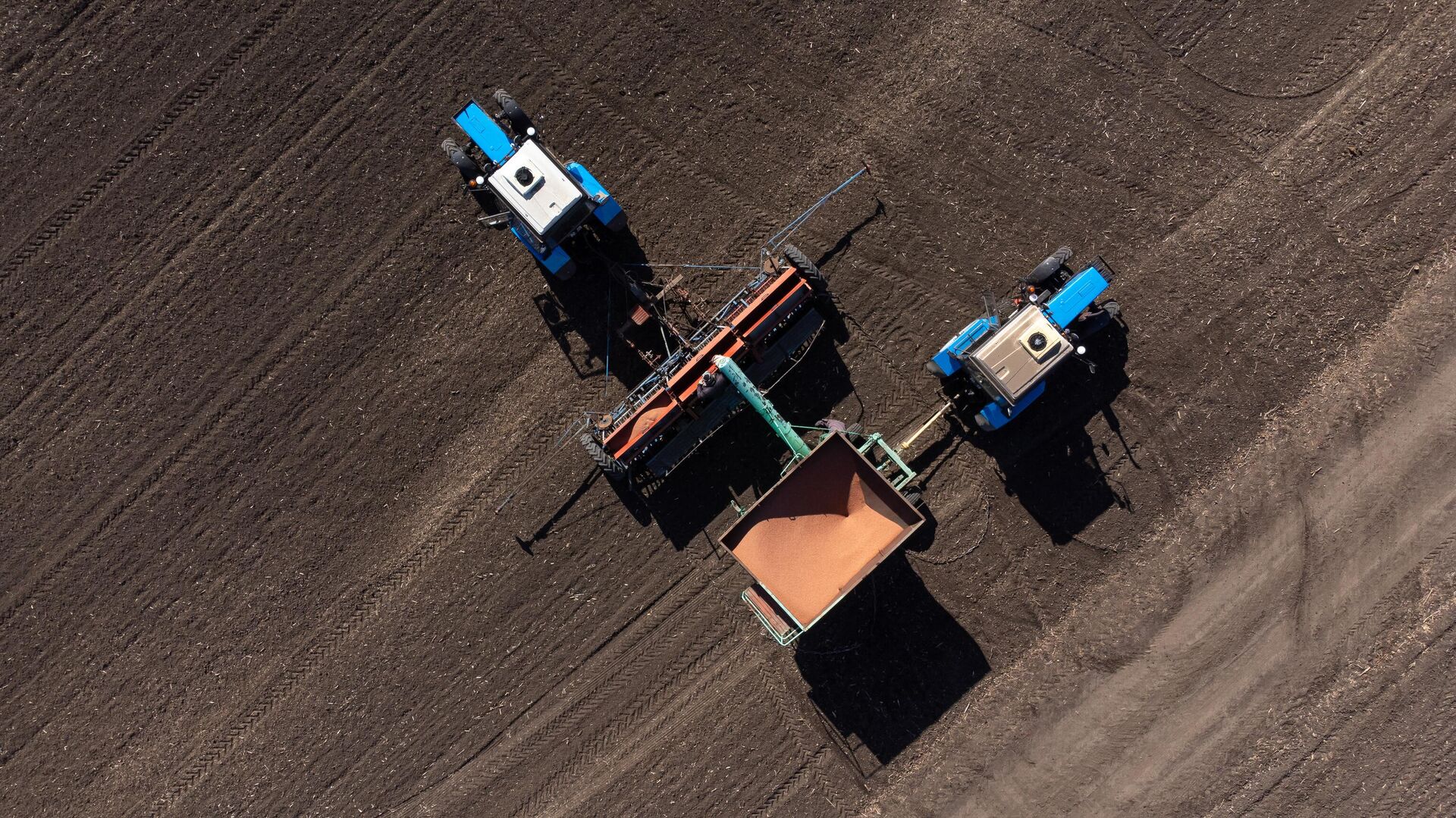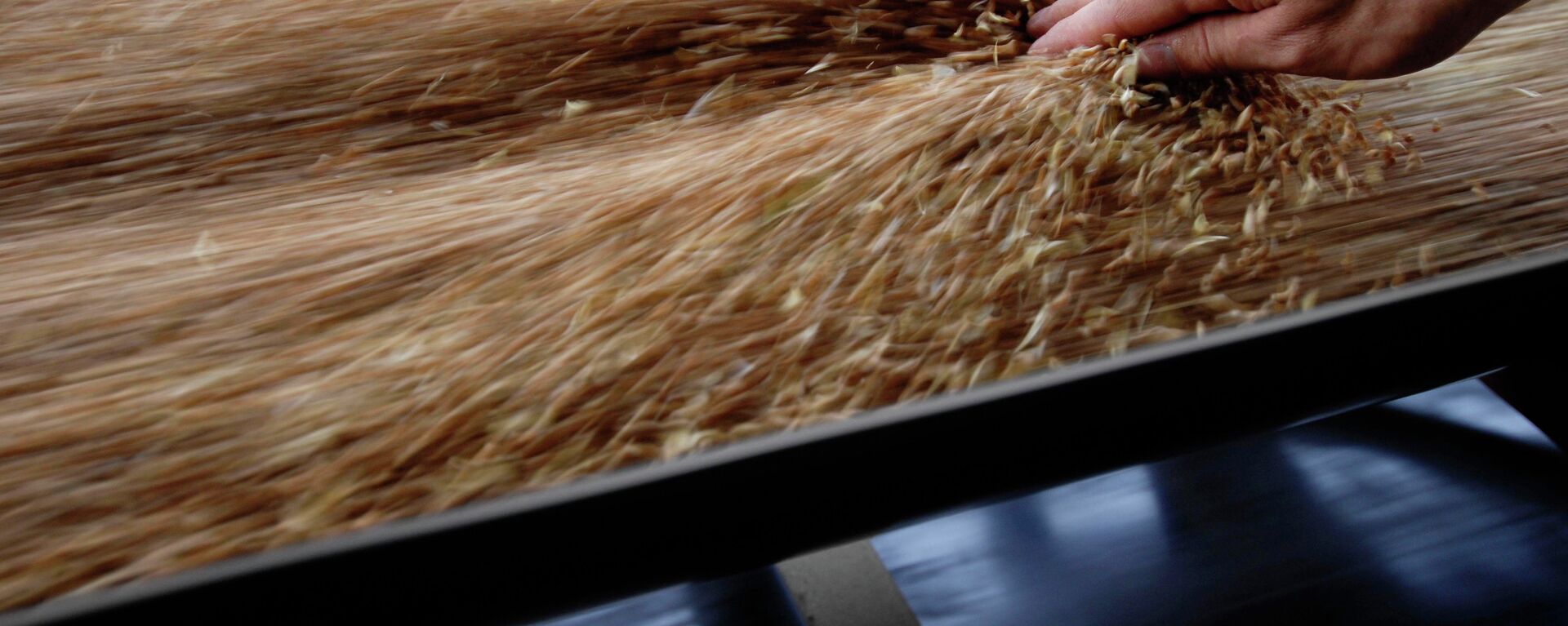https://en.sputniknews.africa/20231120/turkey-expects-to-resolve-issues-of-russian-grain-supply-to-africa-by-year-end-source-1063664456.html
Turkey Expects to Resolve Issues of Russian Grain Supply to Africa By Year-End: Source
Turkey Expects to Resolve Issues of Russian Grain Supply to Africa By Year-End: Source
Sputnik Africa
ANKARA (Sputnik) – Turkey expects to resolve issues related to the processing and delivery of Russian grain to African countries in need by the end of the... 20.11.2023, Sputnik Africa
2023-11-20T08:46+0100
2023-11-20T08:46+0100
2023-11-20T08:46+0100
international
vladimir putin
recep tayyip erdogan
russia
turkey (turkiye)
moscow
world food programme (wfp)
united nations (un)
middle east
https://cdn1.img.sputniknews.africa/img/07e7/0b/14/1063665060_0:161:3071:1888_1920x0_80_0_0_ce047e86a7256754f99b43b15d040a54.jpg
In July, Russian President Vladimir Putin announced his country's intention to deliver grain to six African countries on the list of the World Food Programme as part of humanitarian aid. Turkish President Recep Tayyip Erdogan said Ankara had supported the initiative and would, together with Qatar, facilitate the processing and delivery of Russian grain to the countries in need. The first two ships with wheat for Somalia and Burkina Faso left Russia earlier in November. On July 18, the Turkey- and UN-mediated Black Sea Grain Initiative, which provided for a humanitarian corridor to allow exports of Ukrainian grain over the past year, expired, as Russia did not renew its participation in the deal. Moscow emphasized that the deal's component on facilitating Russian grain and fertilizer exports had not been fulfilled and that most of the supplies were ending up in rich European states instead of poor countries in Africa. After the deal expired, Putin gave assurances that Moscow would continue to supply grain and fertilizers to African countries despite sanctions.
https://en.sputniknews.africa/20231118/turkey-to-mill-russian-grain-for-african-nations-in-need-1063626005.html
russia
turkey (turkiye)
moscow
middle east
Sputnik Africa
feedback@sputniknews.com
+74956456601
MIA „Rossiya Segodnya“
2023
Sputnik Africa
feedback@sputniknews.com
+74956456601
MIA „Rossiya Segodnya“
News
en_EN
Sputnik Africa
feedback@sputniknews.com
+74956456601
MIA „Rossiya Segodnya“
Sputnik Africa
feedback@sputniknews.com
+74956456601
MIA „Rossiya Segodnya“
international, vladimir putin, recep tayyip erdogan, russia, turkey (turkiye), moscow, world food programme (wfp), united nations (un), middle east
international, vladimir putin, recep tayyip erdogan, russia, turkey (turkiye), moscow, world food programme (wfp), united nations (un), middle east
Turkey Expects to Resolve Issues of Russian Grain Supply to Africa By Year-End: Source
ANKARA (Sputnik) – Turkey expects to resolve issues related to the processing and delivery of Russian grain to African countries in need by the end of the year, a diplomatic source in Ankara told Sputnik on Monday.
In July, Russian President Vladimir Putin announced his country's intention to deliver grain to six African countries on the list of the World Food Programme as part of humanitarian aid. Turkish President Recep Tayyip Erdogan said Ankara had supported the initiative and would, together with Qatar, facilitate the processing and delivery of Russian grain to the
countries in need. The first two ships with wheat for Somalia and Burkina Faso left Russia earlier in November.
"The project is under the personal control of Mr. President [Erdogan], there is coordination between the relevant structures. We expect that by the end of the year, we will resolve the issues related to the processing and supply [of Russian grain]," the source said.
On July 18, the Turkey- and UN-mediated Black Sea Grain Initiative, which provided for a humanitarian corridor to allow exports of Ukrainian grain over the past year, expired, as Russia did not renew its participation in the deal. Moscow emphasized that the deal's component on facilitating
Russian grain and fertilizer exports had not been fulfilled and that most of the supplies were ending up in rich European states instead of poor countries in Africa.
After the deal expired, Putin gave assurances that Moscow would continue to supply grain and fertilizers to African countries despite sanctions.


